Together with her husband, Marvin Adams, Margaret Wagner has opened her door and her heart to dogs in need of a home again and again. Whether it’s a Craigslist or Facebook post for a dog seeking a new home or a temporary place to stay, Margaret answers, and while a dog is in her care, she gives them all she’s got. There was the time she turned a malnourished farm dog around with chicken and rice. Or the time her daughter saw a German Shephard puppy left in the park and asked, would she be able to take her in?
And then there is Coco.
Margaret met Coco’s first family via Facebook; they’d had to leave their home but hoped to find another within a year, and they needed a longer-term foster for their Rottweiler. Margaret said yes, even as she knew it would be difficult to bond with Coco only to lose her. If she could help her avoid the stress of entering a shelter and ease the family’s transition, it would be worth it.
The connection was immediate, especially between Coco and Marvin. Even Tinkerbell, Margaret’s Chihuahua, approved. Coco’s family saw it too, and after several months, which included occasional weekend visits with Coco, they asked Margaret if she would like to adopt her. Again, Margaret said yes, “in a heartbeat.”
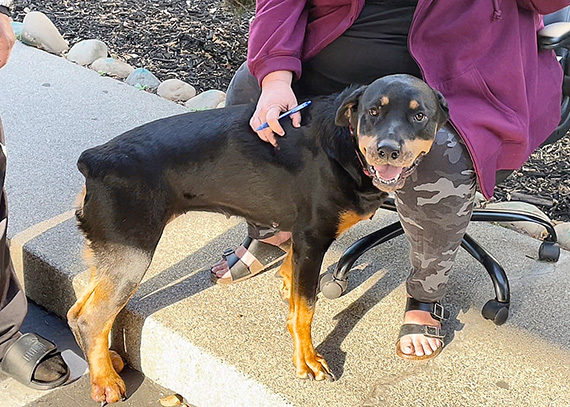
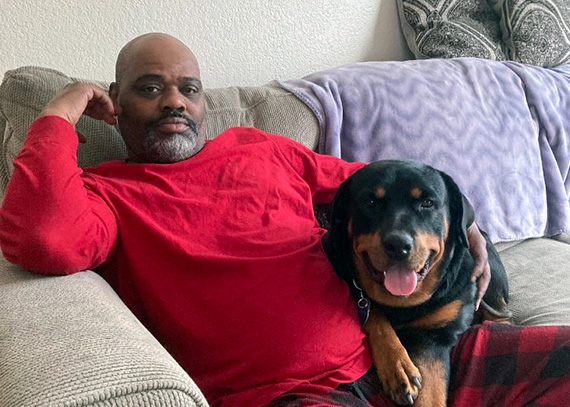
Coco proved to be a constant in a year of challenges: Margaret lost her job, and Marvin, who was diagnosed with congestive heart failure, began wearing a LifeVest to lower his risk of cardiac arrest. Coco, now registered as a service dog, never left his side. Then Margaret noticed sudden swelling in Coco’s back paws. A trip to the vet confirmed Coco would need further testing to pinpoint the cause, but the cost was out of reach.
Like many Californians struggling to find affordable veterinary care while availability shrinks, Margaret searched for support, determined to get Coco the treatment she needed, but came up against more barriers. “I had a notebook with four pages full of websites and agencies,” she says. “I applied at so many and got rejected from so many that it was heartbreaking, you know?”
In the living room with her husband, Coco resting on her favorite loveseat, Margaret realized to get Coco help, they would have to give her up.
It was the hardest decision I've ever had to make in my life.
—Margaret Wagner
Moving forward together
“I just looked at her, and I said, ‘I can’t do this anymore, babe. I can’t.’ I just started crying and I said, ‘I can’t watch her suffer.’ She had lost weight, and she had stopped eating, and she could barely walk. She wasn’t her happy-go-lucky Coco. I said, ‘We have to surrender her as much as we hate to.’ It was the hardest decision I’ve ever had to make in my life.”
She called 311 and was forwarded to Rancho Cordova Animal Services’ voicemail. It was 9 p.m. on a Saturday. Margaret didn’t expect to hear back, but then Animal Services Officer April Stevenson called. She listened to Coco’s story and said yes—not to transferring her to the shelter, but to teaming up with Margaret and Marvin to make sure Coco received the treatment she needed that weekend, thanks to Rancho Cordova’s Community Support Program. The program, established with funding from a California for All Animals grant, is one example of animal services agencies, shelters, and communities tackling systemic barriers that separate families and lead to pets who already have homes entering shelters.
“[This situation] started out sad, and it turned into this beautiful thing so quickly, all because of the grant,” says April.
After a trip to the emergency vet and medication to address the infection, Coco is back to her happy-go-lucky self, and she’s back at Marvin’s side. “She follows him everywhere. She lies either on the floor next to his side of the bed, or she’ll sleep at the bottom of his feet.” Margaret laughs. “Or if he is more towards the middle on my side, then she’ll lay right next to his side. That’s just how she is. That’s his baby.”
Related Stories
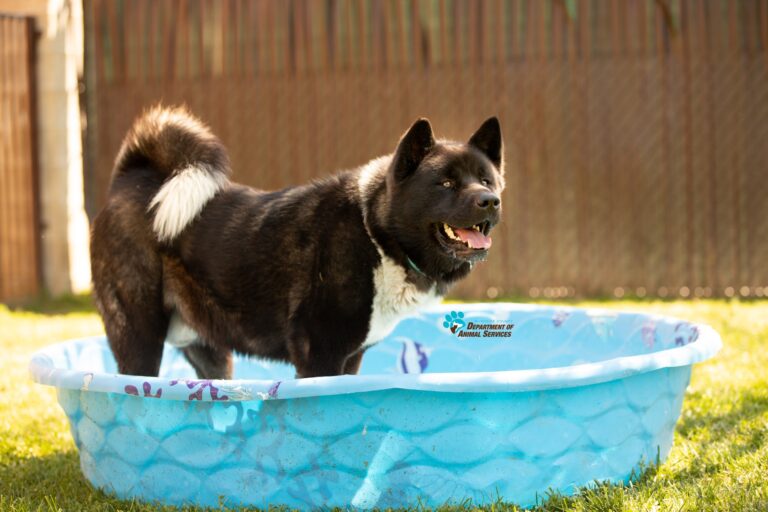
When the Heat Rises, Blythe ACO John Bush Has Your Back
Approximately 225 miles east of Los Angeles and 150 miles west of Phoenix, located inside of Riverside County and flanked by the Colorado River, you’ll find Blythe, California, a rural desert town named after the San Francisco financier who established water rights to the region. You’ll also find John Bush, sole animal control officer for Blythe’s animal shelter, collaborating with residents and visitors to craft solutions for challenges both anticipated and unexpected.
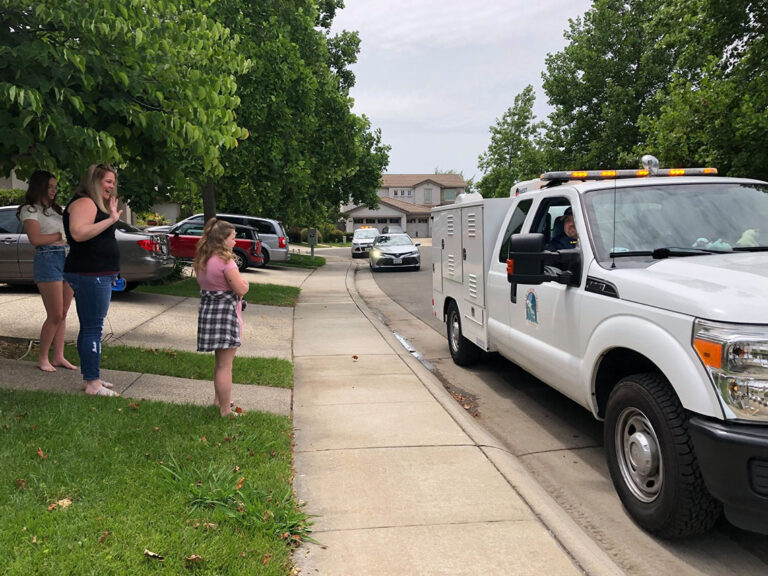
How Rancho Cordova Animal Services Is Making the Right Thing Possible for Pets and People
At a time when many families lack access to essential resources that build health and well-being for themselves and their pets, Rancho Cordova Animal Services
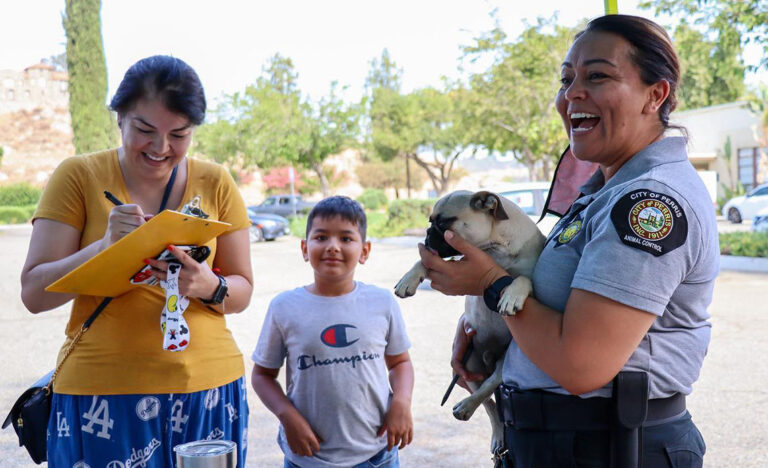
Senior ACO Christina Avila Is Here to Help
In 2014, Christina Avila was burned out. She took a hiatus from animal welfare and reluctantly returned a year later, when she joined the City

